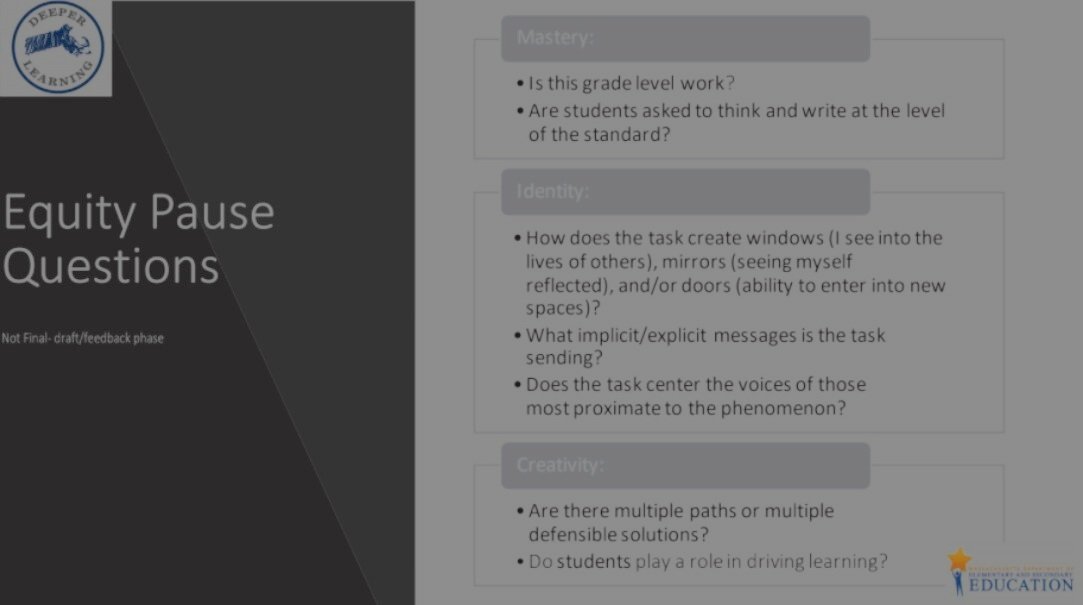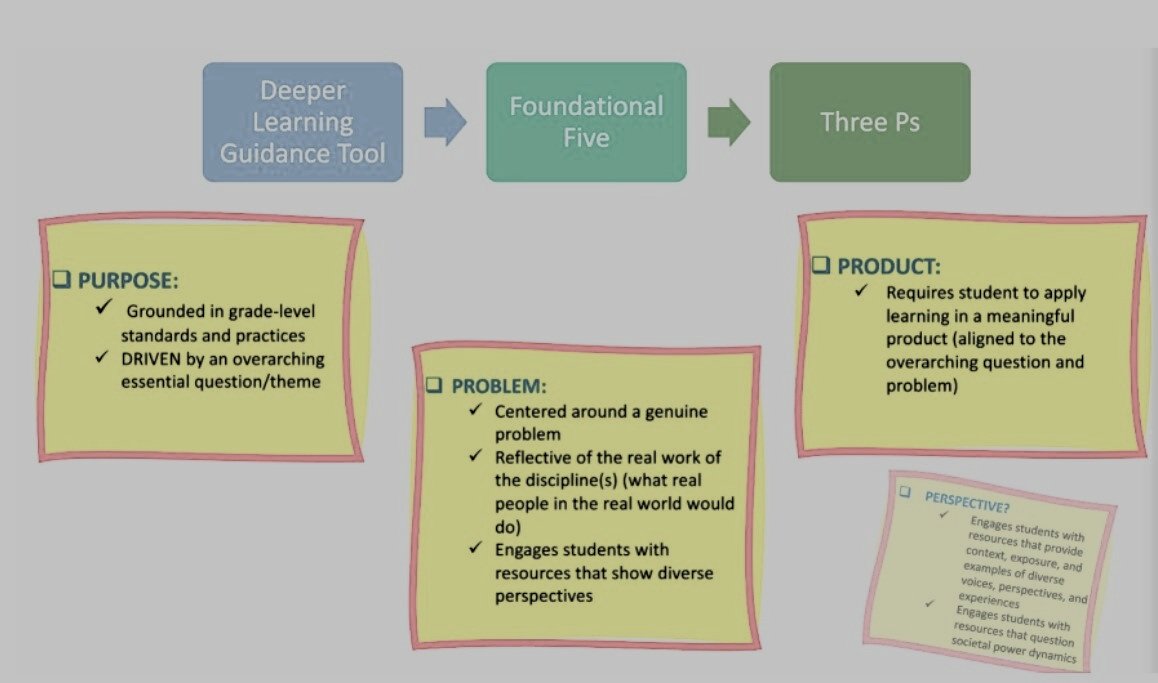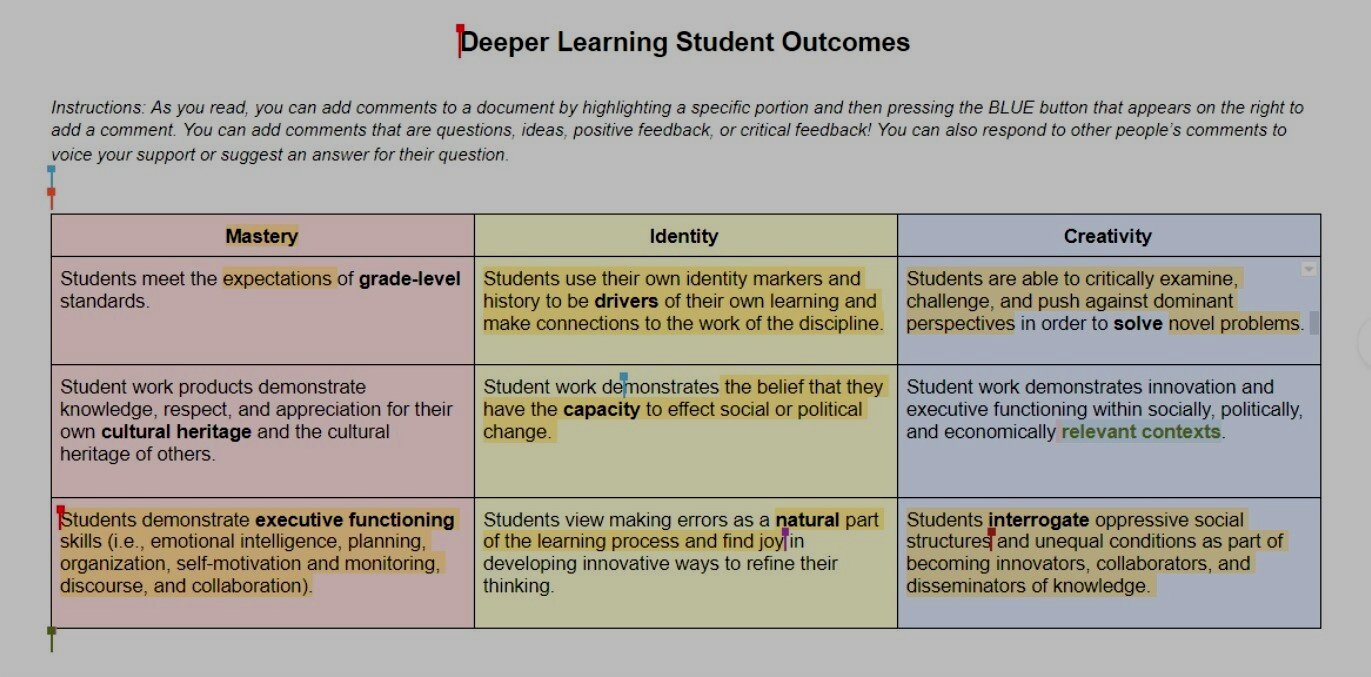Spring 2021: Kaleidoscope Community Council - Department of Elementary and Secondary education
The Kaleidoscope Collective for Learning, run by the Massachusetts Department of Elementary and Secondary Education, seeks to bring about pedagogical innovation in Massachusett’s public schools through Deeper Learning. Deeper Learning focuses on project-based knowledge building, producing authentic work, and developing 21st-century skills, through grade-level work that is relevant, real-world, and interactive. In my sophomore year, I was one of 3 students chosen to serve on their Community Council.
The Community Council
Members apply to be selected
20 students, teachers, administrators, and community members are chosen from across the state
Review and provide feedback on the tools and protocols developed by the Kaleidoscope team
Over the course of four weeks, I met with my fellow councilmembers 0ver zoom, to read and critique materials that would then be introduced into schools. Some examples of some of the tools evaluated, and my feedback is linked.
Some of my key contributions:
I raised the importance of student agency and incorporating student voice throughout the process of Deeper Learning. I believe that when the program is rolled out, there must be ways administrators and teachers can modify and adapt it to student input.
I raised the importance of incorporating and communicating with families. Massachusetts has many different cultures and different economic backgrounds. Helping families understand what Deeper Learning is trying to accomplish will lead to its success.
I highlighted the difficulty of using assessments in such a learning model. Deeper Learning is a continuous process, while assessments are discrete quantifying measures. It goes against the principles of this project to reduce a student’s experience to a letter grade.
I focused on the importance of word choice, given that these materials shape the work of administrators, teachers, and students. Broad, positive outlines must be used in place of academic jargon. Instead of expecting students to “solve” novel issues, encourage them to approach real-world problems and think on their own merit.



